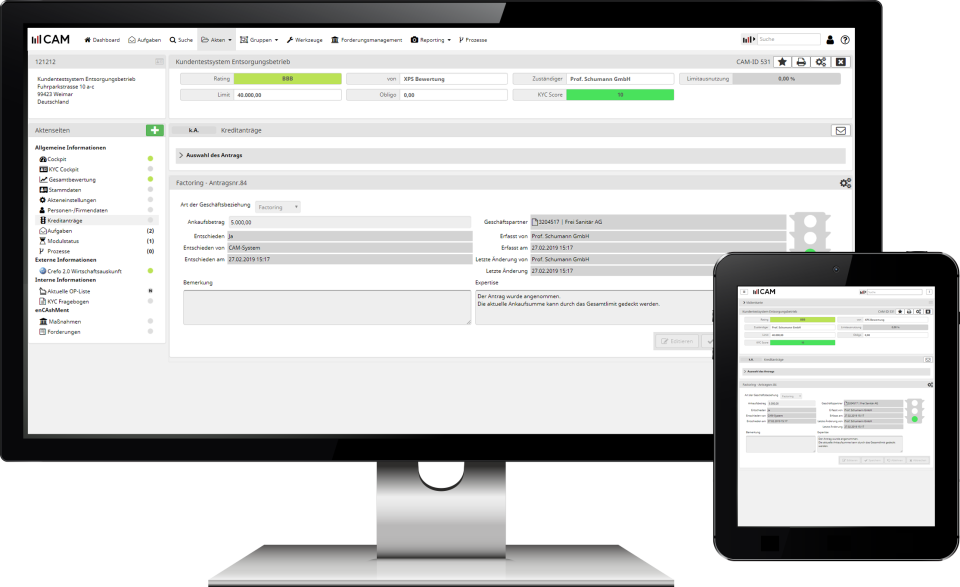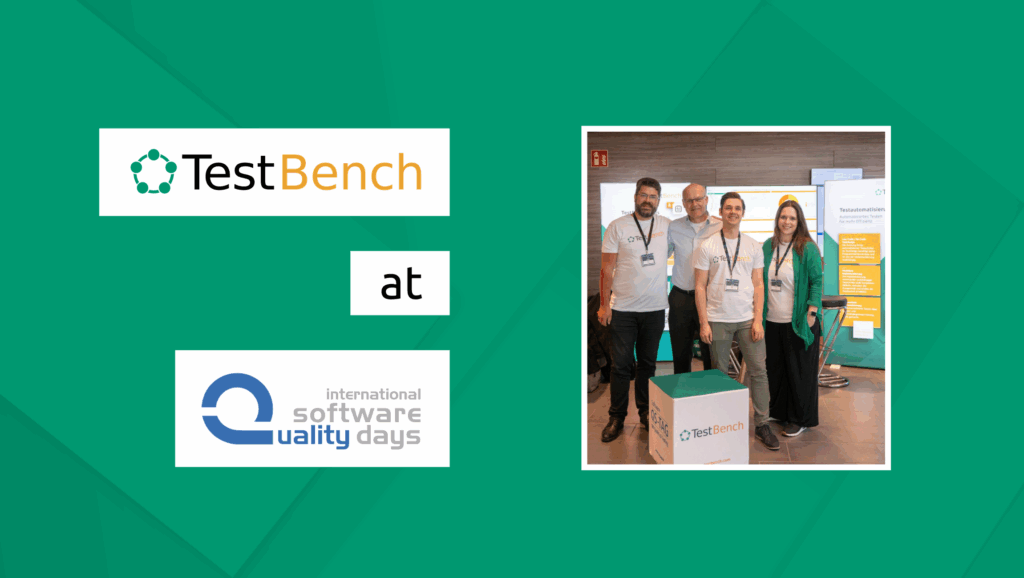
August 8, 2024
TestBench at Prof. Schumann GmbH – More efficient tests and higher quality
In the financial software industry, Prof. Schumann GmbH stands for the highest quality. However, complex test processes presented a challenge. Find out how TestBench enabled a significant increase in efficiency and quality through efficient test management and optimised traceability.
In the financial sector, precise and reliable tests are essential to ensure the highest software quality. Prof. Schumann GmbH, a leading provider of credit risk management software, was faced with the challenge of making its testing processes more efficient and effective. The introduction of TestBench played a central role in this and has sustainably improved quality assurance.
The initial situation: Challenges with Jira Plugin
Before introducing TestBench, Schumann recognised the benefits of Keyword Driven Testing (KDT) for their testing processes and opted for a Jira plugin that suggested it could implement KDT. Although this plugin offered basic functions for Test Management, Schumann encountered considerable difficulties when implementing Keyword Driven Testing. The attempt to replicate KDT via nested test cases in this plugin proved to be time-consuming and complex. This solution did not provide the hoped-for added value in terms of simple maintenance and expandability of the tests. In addition, the reusability of test data was severely limited, which impaired the efficiency of the test processes.

The solution: Introduction of TestBench – a quantum leap in testing efficiency
To fully utilise the advantages of Keyword Driven Testing and Data Driven Testing (DDT), Schumann decided to introduce TestBench. The changeover was supported by the experienced imbus team, who successfully migrated the test specifications from the Jira plugin to TestBench
TestBench brought numerous improvements:
- Efficient Variant Management: TestBench enables efficient management of different product variants, which significantly accelerated the testing processes.
- Increased maintainability and extensibility: Native support for KDT and DDT made it easier to maintain and extend tests, which increased efficiency.
- Improved traceability: The traceability of test cases and their versions was natively supported, which reduced the susceptibility to errors and increased the quality of the tests.
Special use case: iTORX for customer tests
A special use case at Schumann is the utilisation of iTORX for the acceptance tests of software deliveries at their customers. With iTORX, customers receive an exported version of the acceptance tests and can carry them out independently. The test results are then sent back to Schumann.
This process offers the following advantages:
- Documented and versioned acceptance tests: Schumann has complete documentation and versioning of the acceptance tests, which serve as proof.
- Support for customers: Customers receive certainty about the functionality of the software and support during test execution.
The results: A successful step into the future
After two years of using TestBench, Schumann is delighted with the results achieved. TestBench has not only increased the efficiency of the test processes, but has also sustainably improved the quality of the software deliveries. By using iTORX for customer tests, Schumann has also been able to increase customer satisfaction and optimise the documentation and traceability of tests.
The native support of interactions and improved traceability led to a significant reduction in workload. By avoiding parallel processing and introducing data types, the susceptibility to errors was significantly reduced. In addition, customer feedback is now easier to track, which has significantly reduced the amount of testing required.
The introduction of TestBench at Schumann is a good example of how innovative test management tools can master the challenges of modern software development and create considerable added value for companies and their customers.
Category
- Fairs and Conferences (4)
- Features in detail (5)
- Success Stories (6)
- Test methods (1)
New Posts
- A glance back at the International Software Quality Days 2025 – quality meets a variety of perspectives
- Leave Complexity Behind: No-Code Test Automation with Low-Code integration via Robot Framework and TestBench
- TestBench at Ziehm Imaging: Variant management for the highest demands in medical technology
Test on the highest level.
The comprehensive solution for your test management – from planning, design and execution of the tests to complete logging of the test results.
Get TestBench

